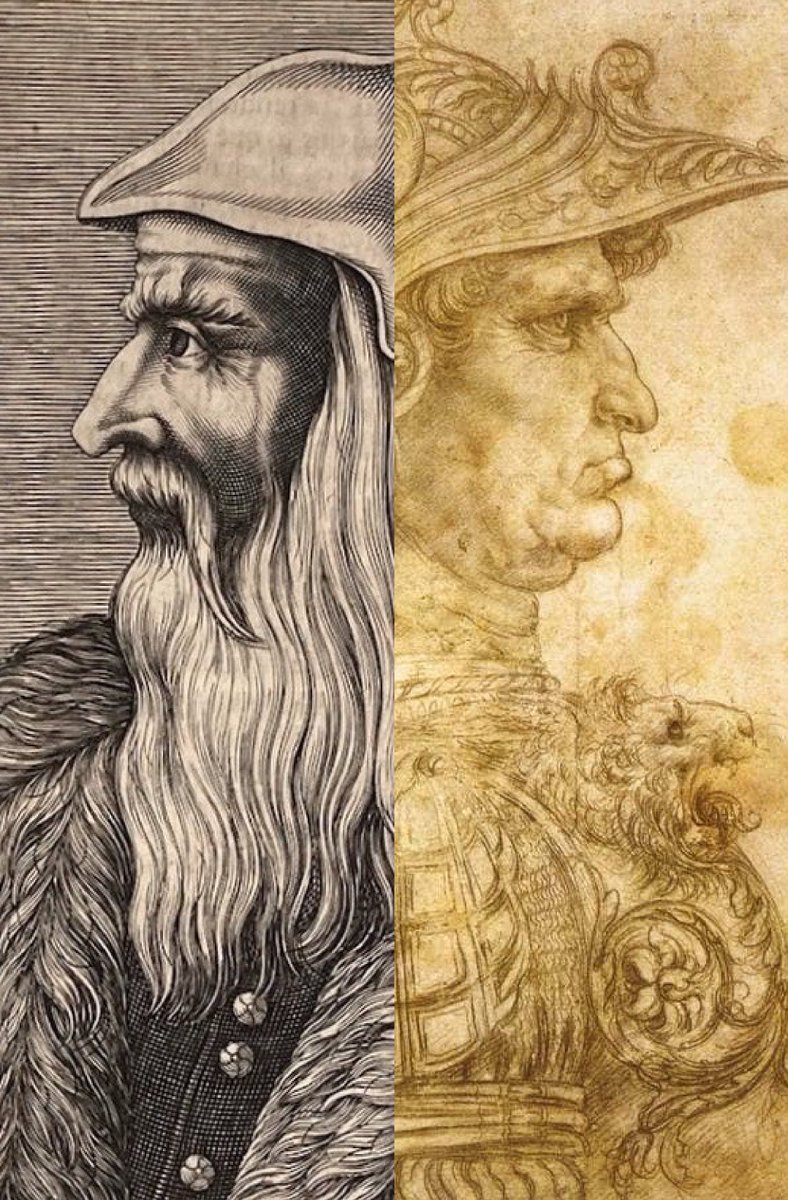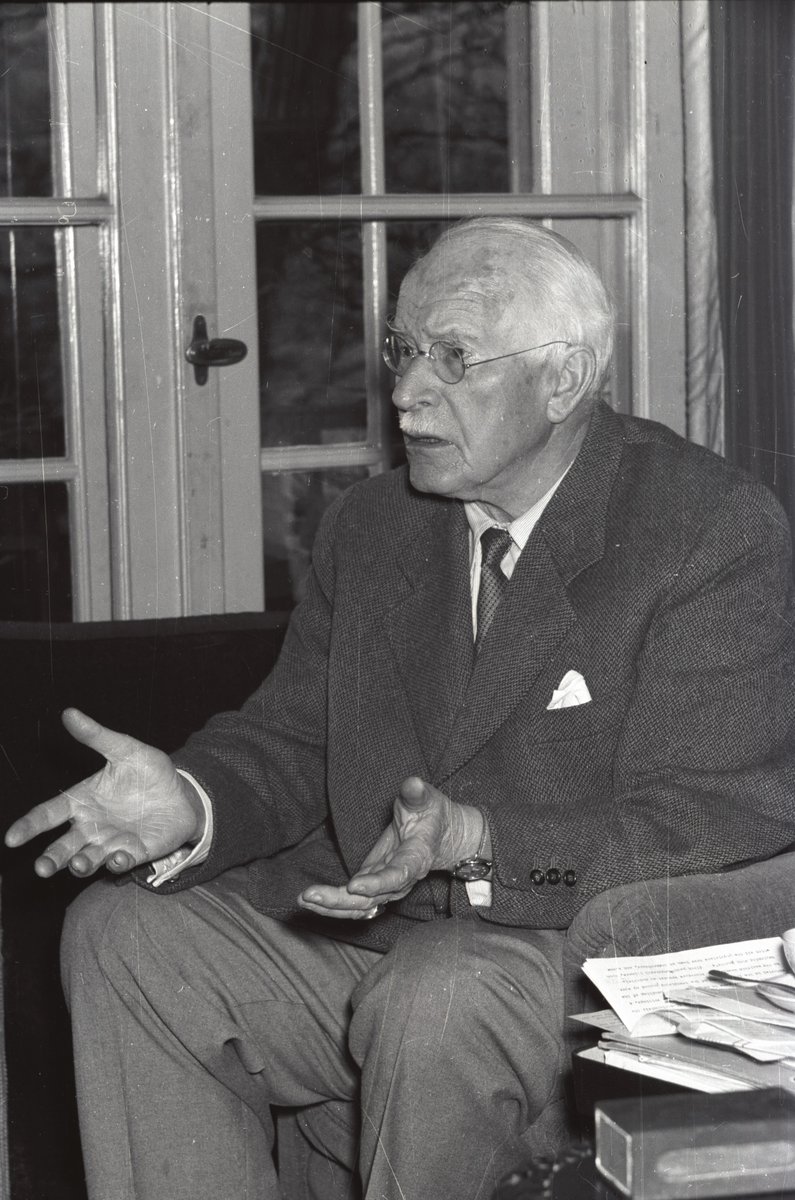Spartacus’s wife walked into her bedroom and was shocked.
A snake was coiled around Spartacus’s head as he slept.
It was prophesied that this meant the man was going to gain tremendous power but perish in an unfortunate end.
And that is EXACTLY what happened…
A snake was coiled around Spartacus’s head as he slept.
It was prophesied that this meant the man was going to gain tremendous power but perish in an unfortunate end.
And that is EXACTLY what happened…

Not much is known about Spartacus’s early life.
His story basically begins with his time serving in the Roman army.
At some point, he either deserted or was caught leading bandit raids, so he was sold into slavery.
His story basically begins with his time serving in the Roman army.
At some point, he either deserted or was caught leading bandit raids, so he was sold into slavery.

He then entered the gladiator arena.
While at a gladiator school, Spartacus, along with about 70 men, orchestrated a great escape in 73 BC.
They armed themselves with kitchen utensils and managed to overpower the guards.
While at a gladiator school, Spartacus, along with about 70 men, orchestrated a great escape in 73 BC.
They armed themselves with kitchen utensils and managed to overpower the guards.

This group of rogue slaves fled to Mount Vesuvius to take refuge.
On their way to the volcano, they stopped by a gladiator cart full of weaponry and armed themselves.
Interestingly, this was a full century before the volcano erupted so it was a mountain more or less.
On their way to the volcano, they stopped by a gladiator cart full of weaponry and armed themselves.
Interestingly, this was a full century before the volcano erupted so it was a mountain more or less.

The Romans were not worried about this band of slaves.
Most of the Roman army had been stationed elsewhere in places like Spain, Crete, and southeast Europe.
A praetor (a rank of considerable prestige, one step below consul) was sent to squash the rebellion though.
Most of the Roman army had been stationed elsewhere in places like Spain, Crete, and southeast Europe.
A praetor (a rank of considerable prestige, one step below consul) was sent to squash the rebellion though.

Gaius Claudius Glaber set up camp with his Romans on the one road up Mount Vesuvius.
He had planned to starve Spartacus and his “army” out.
But Spartacus and his men scaled cliffs on the other side of the volcano with the help of ladders made from vines.
He had planned to starve Spartacus and his “army” out.
But Spartacus and his men scaled cliffs on the other side of the volcano with the help of ladders made from vines.

Plutarch wrote:
“The Romans were ignorant of all this, and, therefore, coming upon them in the rear, they assaulted them unaware and took their camp. Several, also, of the shepherds and herdsmen that were there, stout and nimble fellows, revolted over...
“The Romans were ignorant of all this, and, therefore, coming upon them in the rear, they assaulted them unaware and took their camp. Several, also, of the shepherds and herdsmen that were there, stout and nimble fellows, revolted over...

...to them, to some of whom they gave complete arms, and made use of others as scouts and light-armed soldiers.”
The relatively small group of men defeated Glaber’s 3,000 men...
The relatively small group of men defeated Glaber’s 3,000 men...

Spartacus was just getting warmed up too.
The rogue army would then travel around to local towns recruiting and raiding.
Supposedly, Spartacus demanded an equal share of the loot, which enticed a lot of locals and slaves to join their effort.
The rogue army would then travel around to local towns recruiting and raiding.
Supposedly, Spartacus demanded an equal share of the loot, which enticed a lot of locals and slaves to join their effort.

In the spring of 72 BC, the Roman senate sent two consuls: Lucius Gellius Publicola and Gnaeus Cornelius Lentulus Clodianus, to shut Spartacus down.
Each consul had 10,000 men.
By this time Spartacus and his co-leader Crixus had about 40,000 men.
Each consul had 10,000 men.
By this time Spartacus and his co-leader Crixus had about 40,000 men.

Strangely, the rogue army split up.
The Romans ended up killing Crixus and a lot of the men in that half of the army.
Then they went after Spartacus.
Those that survived ran to catch up with Spartacus and his half of the army, who were heading toward the Alps.
The Romans ended up killing Crixus and a lot of the men in that half of the army.
Then they went after Spartacus.
Those that survived ran to catch up with Spartacus and his half of the army, who were heading toward the Alps.

What the Romans had not counted on though was Spartacus’s calvary.
Somehow the slave leader had trained cavalry and even tamed wild horses.
Spartacus flattened the Roman army…
Somehow the slave leader had trained cavalry and even tamed wild horses.
Spartacus flattened the Roman army…

This time period of Spartacus traveling to the Alps confuses a lot of historians.
He was basically able to escape Roman rule and live freely outside their territory but for some reason, he and his men turned around and marched on Italy.
Spartacus was a mysterious dude.
He was basically able to escape Roman rule and live freely outside their territory but for some reason, he and his men turned around and marched on Italy.
Spartacus was a mysterious dude.

There are a lot of theories thrown around about this decision:
-Maybe the Alps were too intimidating
-Maybe the slaves wanted revenge on the Romans
-Maybe he heard whispers of Romans occupying the areas they had originally planned to escape to
Next, they headed for Sicily.
-Maybe the Alps were too intimidating
-Maybe the slaves wanted revenge on the Romans
-Maybe he heard whispers of Romans occupying the areas they had originally planned to escape to
Next, they headed for Sicily.

Spartacus was after supplies and additional slave recruits on the island of Sicily.
However, he was fooled by some pirates, Plutarch writes:
“After the pirates had struck a bargain with him, and received his earnest, they deceived him and sailed away.”
However, he was fooled by some pirates, Plutarch writes:
“After the pirates had struck a bargain with him, and received his earnest, they deceived him and sailed away.”

So, Spartacus gave up on the sea and fortified a position in the peninsula of Rhegium.
Marcus Licinius Crassus was coming though…
Crassus had been one of the richest men to ever live.
Marcus Licinius Crassus was coming though…
Crassus had been one of the richest men to ever live.

Crassus had taken command of the Roman forces.
He was so wealthy he could raise a large army and pay them, at least in part, out of his own pocket.
He was absolutely ruthless too…
He was so wealthy he could raise a large army and pay them, at least in part, out of his own pocket.
He was absolutely ruthless too…

Some of the men that had retreated when facing Spartacus in previous battles were serving under Crassus.
In an effort to instill discipline in his men, he chose every tenth man from the consular legions by lot and had him executed.
In an effort to instill discipline in his men, he chose every tenth man from the consular legions by lot and had him executed.

And if any units deserted, Crassus would have the men draw lots, and random individuals would be clubbed or stoned to death… 

Crassus set up a fortified wall to trap Spartacus.
Spartacus’s army ended up getting split many times and his fellow commanding officers, such as Castus and Gannicus, were defeated by Crassus.
Spartacus even tried to retreat by sea from the predicament.
Spartacus’s army ended up getting split many times and his fellow commanding officers, such as Castus and Gannicus, were defeated by Crassus.
Spartacus even tried to retreat by sea from the predicament.

Again, for mysterious reasons, he turned and launched a full-on attack against Crassus.
The final battle took place in April 71 BC near the Silarus Valley.
Spartacus lined up his men.
Crassus lined up his men.
The final battle took place in April 71 BC near the Silarus Valley.
Spartacus lined up his men.
Crassus lined up his men.

Plutarch writes just before battle:
“When his horse was brought to him [Spartacus], he drew out his sword and killed him, saying, if he got his day he should have a great many better horses of the enemies, and if he lost it he should have no need of this.”
Interesting strategy.
“When his horse was brought to him [Spartacus], he drew out his sword and killed him, saying, if he got his day he should have a great many better horses of the enemies, and if he lost it he should have no need of this.”
Interesting strategy.

Things didn’t go too well for Spartacus…
He went straight after Crassus, thinking if he could kill him, they may have a chance at winning the battle.
Here’s Plutarch on the “Final Scene” of this incredible “play”:
“And so making directly toward Crassus himself...
He went straight after Crassus, thinking if he could kill him, they may have a chance at winning the battle.
Here’s Plutarch on the “Final Scene” of this incredible “play”:
“And so making directly toward Crassus himself...

...through the midst of arms and wounds, he missed him but slew two centurions that fell upon him together. At last, being deserted by those that were about him, he himself stood his ground, and, surrounded by the enemy, bravely defending himself, was cut to pieces.” 

USEFUL KNOWLEDGE:
-Big things have small beginnings.
If you were to ask Spartacus while he was gathering kitchen utensils to break out of the gladiator school whether he thought he would be fighting the richest man in Rome on a battlefield containing tens of thousands of men,… twitter.com/i/web/status/1…
-Big things have small beginnings.
If you were to ask Spartacus while he was gathering kitchen utensils to break out of the gladiator school whether he thought he would be fighting the richest man in Rome on a battlefield containing tens of thousands of men,… twitter.com/i/web/status/1…

• • •
Missing some Tweet in this thread? You can try to
force a refresh




















